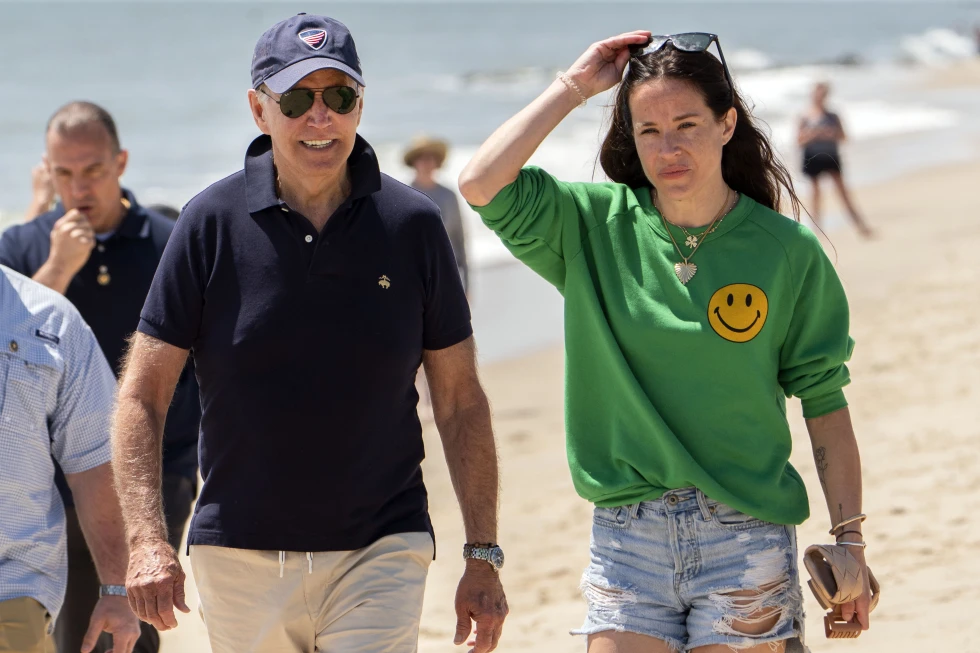The recent decision by U.S. District Judge Analisa Torres to reject Project Veritas’ First Amendment claim and allow criminal prosecutors access to over 900 documents pertaining to the alleged theft of President Joe Biden’s daughter’s diary has sparked significant debate and controversy.
This ruling has raised important questions about the balance between freedom of the press and the need for law enforcement to investigate potential criminal activity.
The conservative group Project Veritas has long positioned itself as a news organization, known for its controversial hidden camera stings that have targeted news outlets, labor organizations, and Democratic politicians.
However, the recent legal battle over the seized documents has brought to light the complex intersection of journalism, privacy, and the rule of law.
In her written decision, Judge Torres emphasized the importance of allowing investigators access to the documents in order to further their investigation into the alleged theft of the diary.
This decision has been met with both support and criticism, with some arguing that it sets a dangerous precedent for press freedom, while others contend that it is a necessary step in ensuring accountability and upholding the law.
Attorney Jeffrey Lichtman, representing Project Veritas, has indicated that the organization is considering appealing the ruling.
This signals a continued legal battle over the boundaries of press freedom and the ability of law enforcement to pursue criminal investigations, particularly when it involves journalists or news organizations.
The case also raises broader questions about the responsibilities and ethical considerations of journalists and news organizations when it comes to obtaining and disseminating information.
While freedom of the press is a fundamental right in a democratic society, it is not without limits, particularly when it comes to potential criminal activity.
The seizure of electronic devices from the residences of Project Veritas members, including founder James O’Keefe, further complicates the legal and ethical implications of the case.
The balance between protecting the privacy of journalists and allowing law enforcement to gather evidence is a delicate and contentious issue that will likely continue to be debated in the courts and in public discourse.
Ultimately, the decision to allow criminal prosecutors access to the seized documents raises important questions about the limits of press freedom and the role of the judiciary in balancing competing interests.
As the legal battle continues, it will be crucial to carefully consider the implications of this case for the future of journalism, privacy rights, and the rule of law.
In a recent legal battle, lawyers for Project Veritas and its founder, James O’Keefe, made a bold claim that the government’s investigation into the organization was not motivated by a genuine interest in justice, but rather by a desire to suppress the press from investigating the President’s family.
This assertion raises important questions about the balance between freedom of the press and government intervention, and the implications for the wider media landscape.
The lawyers argued that the government’s investigation into Project Veritas was biased and politically motivated, pointing to the fact that the probe would not have occurred if the diary in question had not been associated with the last name ‘Biden’.
This claim suggests that the government’s actions were influenced by the identity of the individuals involved, rather than a genuine concern for justice.
This raises concerns about the potential for government interference in the press and the impact on investigative journalism.
However, the judge in the case rejected the First Amendment arguments put forward by Project Veritas, stating that they were inconsistent with Supreme Court precedent.
The judge also noted that Project Veritas could not claim to be protecting the identity of a confidential source, as two individuals involved in the case had already publicly pleaded guilty.
This ruling highlights the importance of upholding legal precedent and the limitations of First Amendment protections in certain circumstances.
The case raises important questions about the role of the press in holding those in power to account, and the potential for government interference in investigative journalism.
The argument put forward by Project Veritas and O’Keefe highlights concerns about political bias and the potential for the government to target specific individuals or organizations based on their reporting.
This has implications for the wider media landscape, as it raises questions about the ability of journalists to investigate and report on matters of public interest without fear of government intervention.
The ruling in this case serves as a reminder of the limitations of First Amendment protections and the importance of upholding legal precedent.
It also raises important questions about the balance between freedom of the press and government intervention, and the potential implications for investigative journalism.
As the media landscape continues to evolve, it is crucial to consider the implications of legal rulings on press freedom and the ability of journalists to hold those in power to account.
The case of Project Veritas and O’Keefe serves as a timely reminder of the challenges facing the press in an increasingly complex and politically charged environment.
The realm of journalism has long been revered as a bastion of truth and integrity, serving as a watchdog for the public interest.
However, the landscape of modern journalism has become increasingly complex, blurring the lines between ethical newsgathering and illicit activities.
The case of Aimee Harris and Robert Kurlander, along with their association with Project Veritas, has sparked widespread debate and scrutiny within the media industry.
This essay aims to delve into the intricacies of this case, examining the ethical implications, legal ramifications, and the broader impact on journalistic practices and responsibilities.
In August 2022, Aimee Harris and Robert Kurlander pleaded guilty to conspiracy to commit interstate transportation of stolen property.
The crux of the case revolves around their discovery of personal items, including a diary belonging to Ashley Biden, the daughter of the President, at a friend’s residence in Delray Beach, Florida.
Their initial intent, as stated, was to sell some of the stolen property to then-President Donald Trump’s campaign.
However, upon being advised to take the material to the FBI, they eventually entered into an agreement with Project Veritas, a prominent investigative journalism organization.
Project Veritas paid Harris and Kurlander to deliver the stolen diary, along with other personal items, to New York.
The involvement of Project Veritas in this case raises significant ethical considerations. While the organization was not charged with any crime, questions have been raised regarding the ethical boundaries of its activities.
Project Veritas has defended its actions as legitimate newsgathering, asserting that its activities were both ethical and legal.
However, the nature of the transaction with Harris and Kurlander, as well as the subsequent fallout, has cast a shadow over these claims.
The resignation of Hannah Giles, the chief executive of Project Veritas, further adds to the complexity of the situation.

Giles cited evidence of past illegality and financial improprieties, indicating a recognition of wrongdoing within the organization.
Her decision to report these findings to law enforcement agencies underscores the gravity of the situation and the potential legal implications.
The legal aftermath of this case has been multifaceted. Notably, the government has not sought prison time for either defendant, despite their admission to stealing the Ashley Biden diary.
This leniency has sparked discussions about the severity of consequences for such actions, particularly in the context of high-profile individuals and organizations.
The broader impact of this case extends beyond the individuals involved, raising questions about the legal responsibilities of journalistic entities.
It prompts a critical examination of the boundaries between legitimate investigative journalism and unlawful activities, highlighting the need for robust ethical frameworks and adherence to legal standards within the industry.
The repercussions of this case reverberate throughout the journalism landscape, impacting public trust and the perception of journalistic integrity.
Instances of unethical or illegal conduct within the realm of journalism can erode public confidence and undermine the fundamental role of the press in a democratic society.
The case of Aimee Harris, Robert Kurlander, and Project Veritas serves as a cautionary tale, emphasizing the imperative for transparency, accountability, and ethical conduct within the field of journalism.
The case of Aimee Harris, Robert Kurlander, and their association with Project Veritas underscores the intricate interplay between ethical journalism, legal responsibility, and the broader implications for the industry.
It prompts a rigorous examination of the ethical boundaries and legal obligations that govern journalistic practices.
As the media landscape continues to evolve, maintaining the highest ethical standards and upholding legal responsibilities are paramount in preserving the integrity and trustworthiness of journalism as a cornerstone of democratic society.
